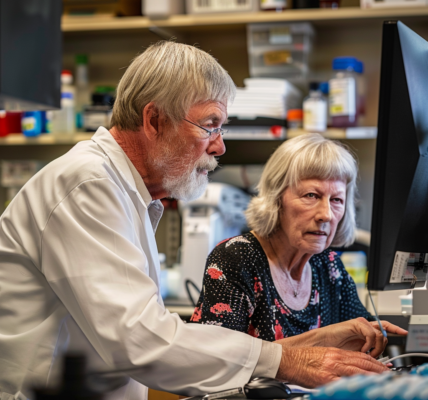A recent study has found that the genetic risk of developing Alzheimer’s disease is more strongly influenced by the mother’s side than the father’s side. Alzheimer’s disease, a condition that robs individuals of memories, independence, and the ability to connect with loved ones, affects over 55 million people worldwide, with Alzheimer’s being the most common form of dementia, representing 60-70% of cases.
The prevalence of dementia is expected to nearly double every 20 years, emphasizing the critical need for improved methods of diagnosis, treatment, and prevention. The new study, published in JAMA Neurology, could offer valuable insights for researchers working on developing novel therapies.
Through the analysis of data from 4,413 individuals aged 65 to 85 without cognitive impairments, the study revealed that individuals with a maternal history of memory loss had a higher risk of developing Alzheimer’s disease at any age compared to those with only a paternal history of memory loss or no family history of memory issues. However, individuals whose fathers experienced early-onset memory loss before the age of 65 also exhibited an increased risk of Alzheimer’s disease.
The study’s substantial sample size enhances the accuracy of the findings, although it primarily consisted of white participants, potentially impacting the generalizability of the results to other ethnic groups. The participants were part of the Anti-Amyloid Treatment in Asymptomatic Alzheimer study, a phase 3 clinical trial investigating a drug aimed at slowing the progression of memory problems.
These findings underscore the importance of understanding the familial influences on Alzheimer’s disease risk and may guide future research efforts in developing targeted interventions and treatments for this debilitating condition.





